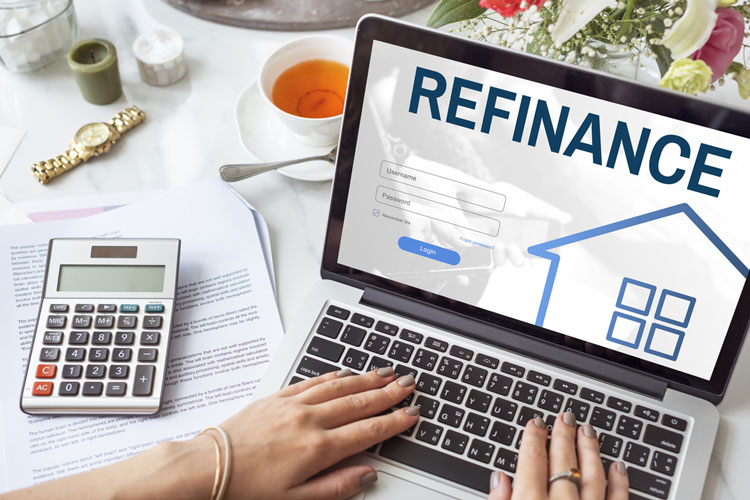When you are purchasing a new home, there are several steps that you must follow before closing. While it may appear quite complicated and daunting to get a mortgage, a basic understanding of the overall process can make it easier. Following is a walk-through and tips regarding the mortgage process to get you started: Read more
Tips for First-Time Home Buyers
Our loan experts can guide first-time home buyers, better understand all their mortgage options to have a complete understanding of the process that entails purchasing a home. Your unique circumstances, budget, and needs will help us develop a plan to assist you better and purchase your desired home. Moreover, you will feel confident and in control of your journey as a new homeowner. Read more
5 Things to Know Before Purchasing Your First Home
Buying your first home in South Florida can be a meaningful time in your life. Not everyone reaches the point where they can afford a home, and when you’re finally at that point, you want everything to be perfect. However, a lot goes into buying a home, and you must ensure that you know all aspects before you begin buying one. Here are five things you should know before you start looking at homes to potentially buy:
Your Budget
Before looking at homes in your area or another town, you need to know what budget you can work with. Regarding your budget, it’s not the money you have in your bank account currently but all the money you would be able to invest in your home in the future too.
You might want to think about getting a loan or looking for a home mortgage to go along with your property purchase. You need to think about several aspects before looking at homes. Once you have settled on a budget, you can narrow down your search for homes using that budget as a starting point.
Mortgage Rates in Your Area
South Florida has varying mortgage rates, depending on which mortgage provider you’re approaching. You can find a provider available throughout the area, so you can work with one lender no matter where you’re looking to buy your home.
When you know your mortgage rates, you can plan better and find homes that fit the bill and your budget too. Mortgage rates will also ensure you know how much you will be paying in the future for your home.
Timeline for Possession
Once you are in the process of discussing the purchase of a home, you need to know what the exact timeline would be. Sometimes, the seller will need additional time to move out of the home or might want to rent it from you for a while. In these cases, you must know when you can move in.
From the time you put a down payment on the home, the process of purchasing the property officially starts. Ensure you know when you can move into the property before you start the process.
Land Record and Location
While South Florida is one of the most earthquake-free zones in the world, it doesn’t mean you don’t check the land your home was built on. Wildfires, tropical storms, and hurricanes can happen in the area, and you want to ensure that you know what you will be exposed to.
Once you know the location and the land record, you can also get started on disaster insurance for your property if required.
Hidden Charges
You will need to be reading all documents relating to the purchase of the property in detail to ensure that you’re not paying any hidden fees. You might need to pay estate charges or processing fees that you were unaware of. Ensure you’re reading everything, including the fine print, to save yourself from unnecessary expenses.
Looking to Finance Your Home? We Can Help
When you’re looking for a mortgage to help you buy your first home, Pacific Lending Group can help. You need to know your options as a first-time buyer and what you should be watching out for. Our experts can help you be more financially prepared to buy your first home without any hassles. Contact us at 954-227-4727 to get started on your home mortgage process with us.
Increase Your Chances to Get Approved by a Mortgage Company
Getting your mortgage approved is not as easy as most people think due to specific criteria that need to be met. However, at Pacific lending Group, we have recommendations that you can follow to increase your chances of getting approved for a mortgage loan. Read more
What You Should Know About Mortgage Refinancing
Buying a home involves various financial obligations, and you may have taken out a mortgage to help pay for your home. However, with fluctuating interest rates and an unstable financial outlook, you might be looking to adjust your current home mortgage with one that is more flexible to your requirements.
Refinance mortgage is an ideal option for many homeowners, whether they’re looking to free up some money or want to shift from an adjustable rate to a fixed rate. Here is what you should know about mortgage refinancing before you get started:
What is Mortgage Refinancing?
Mortgage refinancing is when you get a new home loan to replace the existing mortgage on your property. It may be due to various reasons, like you might be getting a lower interest rate than what you’re paying for your current mortgage, thereby saving money.
While mortgage refinancing can sound complicated, it is quite simple to get started if you’re working with a trustworthy home mortgage company.
When Should You Get One?
Several reasons may prompt you to get mortgage refinancing, and these include:
If you’re getting a lower interest rate on your new home mortgage
If you want to shift from a fixed-rate mortgage to an adjustable-rate mortgage, and vice versa
When you want to shorten the repayment period of your mortgage, or conversely, you are looking for a 30-year mortgage plan to replace your existing 15-year mortgage.
If you’re looking to consolidate your debt or have a sudden financial emergency
Depending on your current financial situation, refinancing may not be the best option for you. It can cost anywhere between 3% to 6% of your loan’s principal amount and has separate application fees.
How to Start
If you’re considering refinancing your home mortgage, you should have a clear reason for doing so. Whether it is to save money or extend your repayment period, you need to be clear. You will need to check your credit score and history to ensure that you can get good rates for your refinancing.
When you don’t have a good credit score but are refinancing to get lower interest rates, it might be worthwhile building your credit score for a few months first. You will also need to determine your existing home equity. When you have more equity on your home, the lender will determine your refinancing is less risky, which can make it more favorable for them.
Working With the Right Experts
Ensuring that you get the best refinancing plan for your home is essential, and you will need to look for a good and experienced mortgage refinancing business in South Florida. It’s best to discuss with your lender the possible options, so you can lock in your rate before it goes up.
Looking for Reliable Mortgage Refinancing? We Can Help
When you’re in South Florida looking for the best mortgage refinancing plan for your needs, Pacific Lending Group is here to help. Our business has maintained an A+ rating from the Better Business Bureau for years, which shows our commitment to our customers and our dedication to serving your needs. Refinancing doesn’t need to be a stressful experience, and we can simplify it for you with the help of our experts. Call us at (954) 227-4727 to schedule an appointment.





